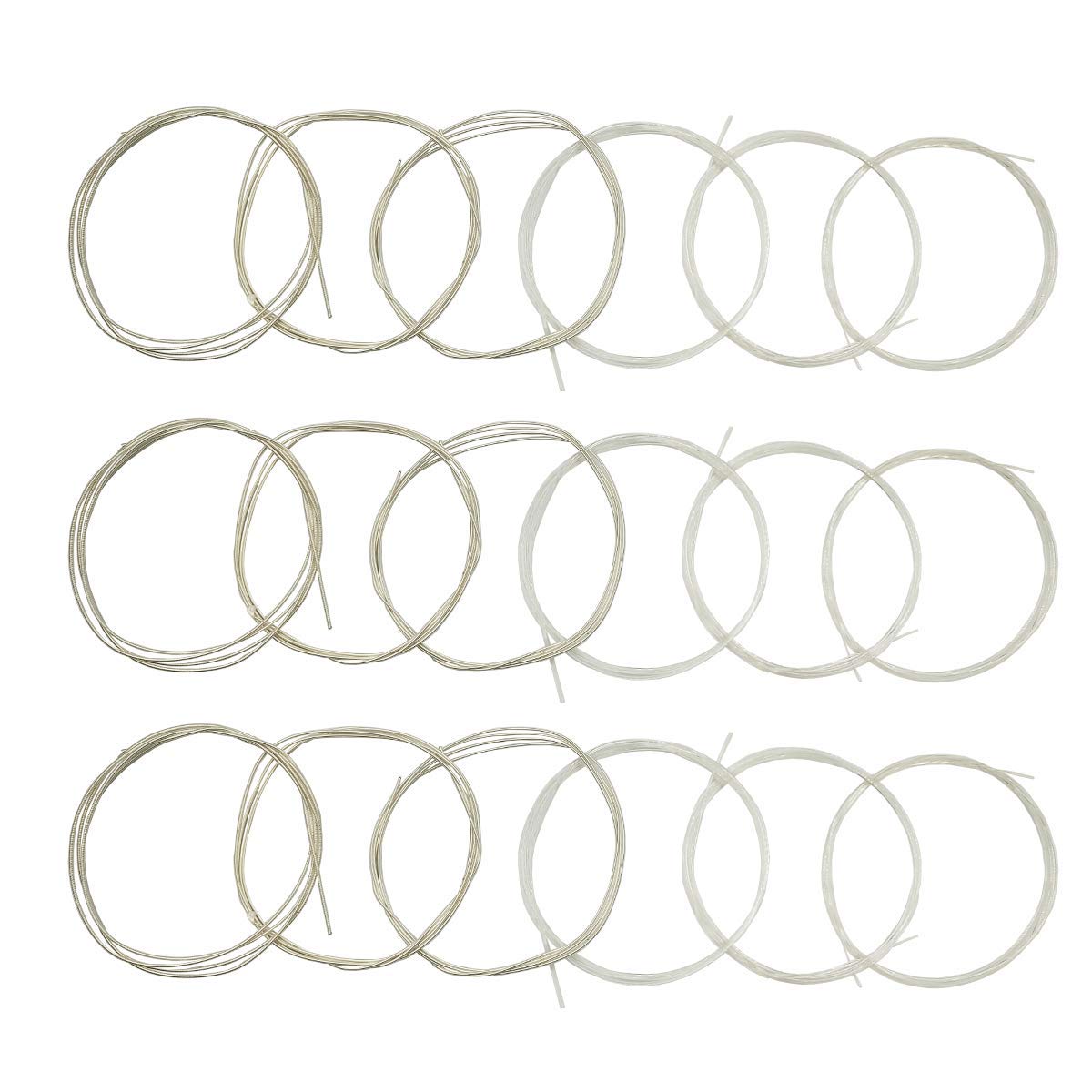
JYsun Classical Guitar Strings 3 full sets Clear Nylon for E-1st B-2nd G-3rd and Nylon Core Silver-Plated Copper Alloy Wound for
$12.83
Frequently Asked Questions
- Q: What materials are used in the JYsun Classical Guitar Strings? A: The JYsun Classical Guitar Strings are made from clear nylon for the E-1st, B-2nd, and G-3rd strings, while the D-4th, A-5th, and E-6th strings feature a nylon core wound with silver-plated copper alloy.
- Q: What are the diameters of each string in the set? A: The diameters are as follows: E-1st: 0.028 inch (0.71 mm), B-2nd: 0.032 inch (0.81 mm), G-3rd: 0.040 inch (1.02 mm), D-4th: 0.030 inch (0.76 mm), A-5th: 0.035 inch (0.89 mm), and E-6th: 0.043 inch (1.09 mm).
- Q: How many sets of strings are included in one package? A: One package includes three full sets of classical guitar strings, totaling six pieces per set.
- Q: What is the packaged size of one set of strings? A: The package size for one set of JYsun Classical Guitar Strings is 11.5 cm x 11 cm x 0.5 cm.
- Q: Are these strings suitable for beginners? A: Yes, the JYsun Classical Guitar Strings are suitable for beginners, as they are easy to play and provide a warm, rich tone that is ideal for classical guitar.
- Q: How often should I change my guitar strings? A: Generally, guitar strings should be changed every 1 to 4 weeks, depending on usage and playing frequency. Frequent players may need to change strings more often.
- Q: Do these strings provide a good tone for classical music? A: Yes, the nylon and silver-plated copper alloy construction of these strings helps produce a warm and vibrant tone, making them suitable for classical music.
- Q: Can these strings be used on other types of guitars? A: These strings are specifically designed for classical guitars and may not be suitable for acoustic or electric guitars, which typically require different string types.
- Q: What care should I take to extend the life of my guitar strings? A: To extend the life of your guitar strings, keep your hands clean before playing, wipe down the strings after use, and store your guitar in a controlled environment to avoid humidity damage.
- Q: How do I know when to replace my guitar strings? A: You should replace your guitar strings if you notice a dull sound, visible wear or corrosion, or if they break during play.




